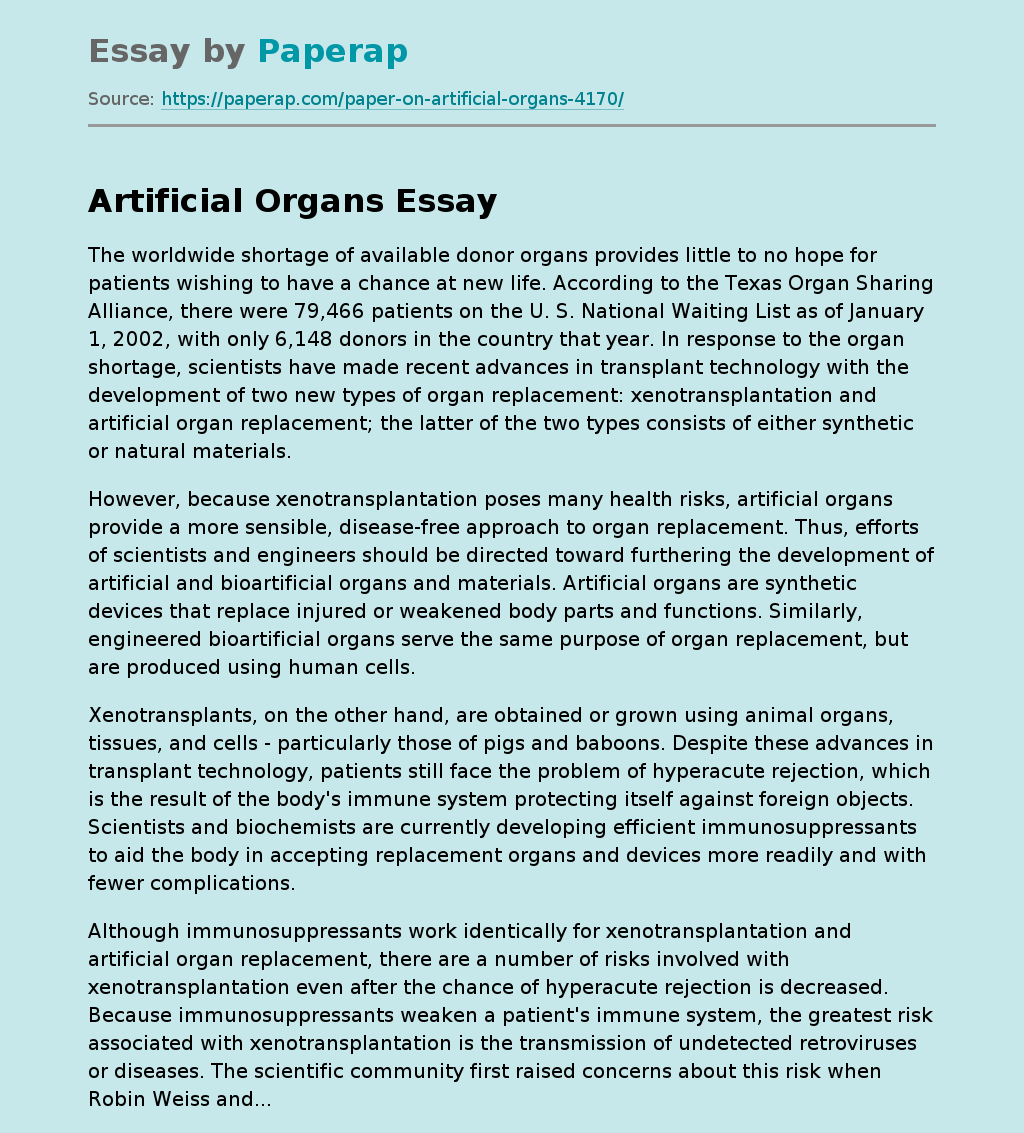The worldwide shortage of available donor organs provides little to no hope for patients wishing to have a chance at new life. According to the Texas Organ Sharing Alliance, there were 79,466 patients on the U. S. National Waiting List as of January 1, 2002, with only 6,148 donors in the country that year. In response to the organ shortage, scientists have made recent advances in transplant technology with the development of two new types of organ replacement: xenotransplantation and artificial organ replacement; the latter of the two types consists of either synthetic or natural materials.
However, because xenotransplantation poses many health risks, artificial organs provide a more sensible, disease-free approach to organ replacement. Thus, efforts of scientists and engineers should be directed toward furthering the development of artificial and bioartificial organs and materials. Artificial organs are synthetic devices that replace injured or weakened body parts and functions. Similarly, engineered bioartificial organs serve the same purpose of organ replacement, but are produced using human cells.
Xenotransplants, on the other hand, are obtained or grown using animal organs, tissues, and cells – particularly those of pigs and baboons. Despite these advances in transplant technology, patients still face the problem of hyperacute rejection, which is the result of the body’s immune system protecting itself against foreign objects. Scientists and biochemists are currently developing efficient immunosuppressants to aid the body in accepting replacement organs and devices more readily and with fewer complications.
Although immunosuppressants work identically for xenotransplantation and artificial organ replacement, there are a number of risks involved with xenotransplantation even after the chance of hyperacute rejection is decreased.
Because immunosuppressants weaken a patient’s immune system, the greatest risk associated with xenotransplantation is the transmission of undetected retroviruses or diseases. The scientific community first raised concerns about this risk when Robin Weiss and…
Artificial Organs. (2018, Jan 03). Retrieved from https://paperap.com/paper-on-artificial-organs-4170/

